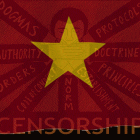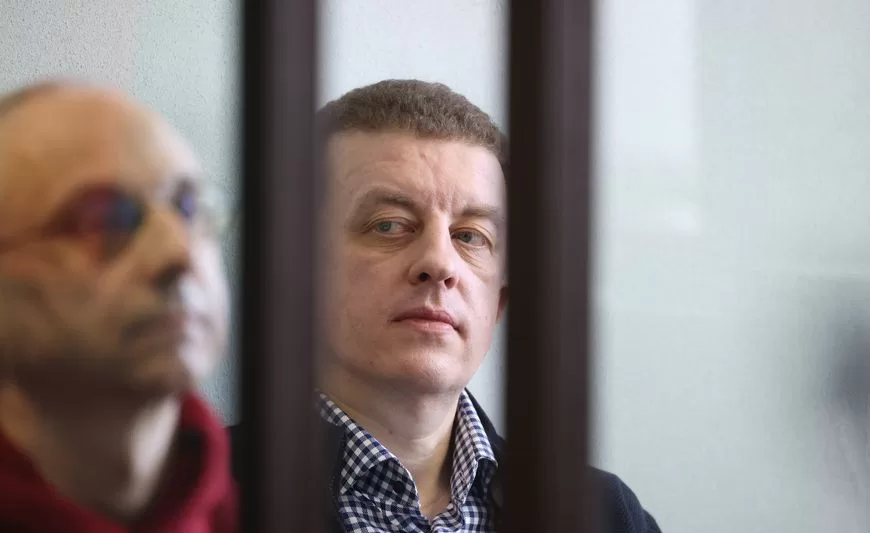 Dissent has suffered a crackdown in Vietnam in recent years, with bloggers often being the main target. Geoffrey Cain asks what has prompted this backlash against free speech
Dissent has suffered a crackdown in Vietnam in recent years, with bloggers often being the main target. Geoffrey Cain asks what has prompted this backlash against free speech
In Vietnam, protests have boiled to a level unprecedented since the start of this decade. Last month, the fight for free expression hit an unexpected climax. The mother of imprisoned blogger Dang Thi Kim Lieng killed herself in a self-immolation, protesting her daughter’s upcoming trial and sending an uneasy hush over the government. The hearings were supposed to commence on 7 August — a full four years after the blogger was first detained — but since the suicide the trial has been delayed indefinitely.
But this was merely the latest paroxysm in a state-led retaliation against freedom of speech that picked up in mid-2008. With demonstrations flaring up over land disputes and against Chinese naval aggression in the South China Sea, the Communist Party has been striking back against dissidents on the streets and online.
Bloggers have been the primary target, as the state tries to prevent them spreading videos of police brutality, writing critical articles and promoting demonstrations on their websites. As of this year, at least 17 Vietnamese bloggers are behind bars, according to Human Rights Watch. That makes Vietnam the second-worst jailer of netizens after China. Many of them have been imprisoned for writing about topics the government deems sensitive, such as land grabs by local property developers and the South China Sea dispute.
“They say every writer has scissors in the back of his mind,” one pro-democracy blogger told me, who asked not to be named. “You never know when the party will strike to make an example of you.”
What’s prompted the swift backlash against free speech? In the 1990s and early 2000s, Vietnam’s market reforms were enriching people from outside the traditional power center of Hanoi, a development that bolstered all sorts of new and critical voices under the one-party banner. The Communist Party wanted to keep the trend going as proof that it was cleaning up its act before joining the World Trade Organisation in 2007. Leaders declared that corruption, in particular, was a plague that could hold back the economy, and tasked its journalists and writers with uncovering malfeasance in the government and business.
As a result, the country witnessed a blossoming of print investigative journalism that led to the arrests of gangsters and and corrupt government officials, and by the mid-2000s a nascent blogging movement. In a nation where all newspapers remained fully or partially government-owned, the growth of the internet meant that the flow of information was increasingly out of reach from members of the Politburo, the party’s all-powerful body that sets the country’s direction. The crackdowns, of course, haven’t stopped Vietnam’s boisterous bloggers and journalists, and not all of them end up in trouble — unless they touch on topics related to high-level politics.
Even though Vietnam’s 1992 Constitution guarantees freedom of speech, writers and bloggers eventually took their role as the “fourth estate” too far for the tastes of the Party. They encountered a sharp reversal after the PMU-18 scandal of 2006, when journalists and bloggers revealed that officials in the Ministry of Transport were gambling away millions of dollars in donor aid. In 2008, two prominent reporters were imprisoned for two years for their writing. The Party’s strike back was also prompted by a growing pro-democracy movement in the mid-2000s, when hundreds of brave Vietnamese signed a multi-party manifesto circulated online. Since then, any hopes for political dissent in the blogosphere or in print have been thwarted.
Vietnam expert Carl Thayer notes that the rise of To Huy Rua, a socialist ideologue who acts as an interlocutor with the Chinese Communist Party, has coincided with stronger measures targeting against intellectuals and dissidents. (His assertion is backed by the American cables unveiled by Wikileaks.) Rua heads the party’s information commission, giving him sway over issues of ideology and public discourse.
Historically, free-thought crackdowns pick up around the time the Communist Party holds its congresses every five years, when factions fight over the new leaders and they want information tightly controlled. The latest restrictions are unusual because, despite intermittent relaxations since the mid-2000s, the government has pretty much kept up the pace. In June, officials unveiled a draft of the new Internet Decree, which would require bloggers to publish their contact information online. It’s not yet clear when the bill will be passed.
The move is one more attempt to rein in all those new voices in Vietnamese politics who have garnered enough clout to contest one-party rule. And as those leaders try to reassert control over which criticisms are acceptable, they’re facing even more of a pushback from the writers and bloggers who are promulgating the protests and dissent.
Geoffrey Cain, a freelance journalist, has covered Asia for Time, The Economist, The Wall Street Journal, and Foreign Policy. He is an editor at the New Mandala, the Southeast Asia blog at the Australian National University. He tweets at @geoffrey_cain




